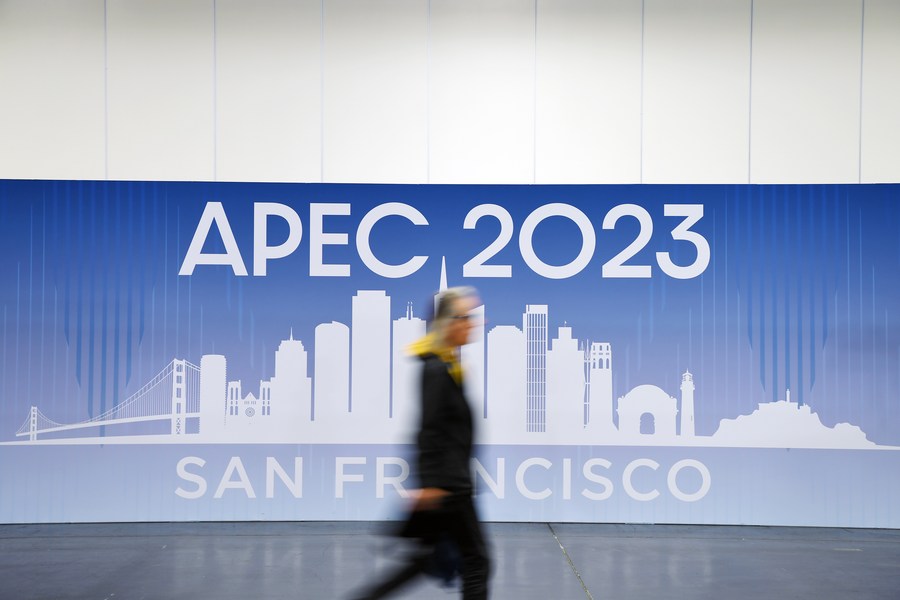China promotes mutual respect, shared benefits in Asia-Pacific


In a turbulent world marked by recurrent local conflicts and mounting global challenges, the Asia-Pacific region faces new obstacles in its quest for peace and development, notably the exacerbated disparities and disagreements among its nations.
China, however, stands out because its economic and global governing endeavors have positioned it as a key player capable of shaping the dynamics in the region. The country has always made efforts to preserve peace, promote collaboration and cooperation, and strive for unity and collective progress in the Asia-Pacific. As opposed to the confrontational approach, China advocates using peaceful dialogue and consultation to resolve disputes, in line with international laws and conventions, notably the United Nations Convention on the Law of the Sea.
China favors inclusivity and multilateral cooperation over alignments that, more often than not, are aimed at building power blocs reminiscent of the Cold War era. For Beijing, the Asia-Pacific is not a field for geopolitical contests, but a region for cooperation and development.
This view is totally different from the strategy of forming alliances, which, according to China, only serves to heighten tensions and create divisions. China's call to abandon the Cold War mentality is a significant aspect of its international relations.
Instead of forming alliances, which often leads to tensions and conflicts, and shifting people's attention from common threats such as deteriorating global governance and worsening climate change, China promotes a new type of international relations that is marked by mutual respect, cooperation and shared benefits and is aimed at maintaining long-term peace and prosperity in the region.
China's emphasis that regional players make more efforts to maintain peace and stability underscores its vision of a multipolar world order, in which the international community operates on the basis of equality and collective decision-making and all countries, regardless of their size and national strength, contribute to shaping the regional and global narratives. At its core, China's stance is about safeguarding its sovereignty, fostering cooperation and helping build a balanced and pragmatic world.
China's advocacy of the Pacific vision stands as a testament to its commitment to these ideals, enriching the discourse on regional geopolitics.
And as Chinese Defense Minister Dong Jun said in Singapore, during the 21st Shangri-La Dialogue in early June, the values that prevail in Asia are harmony and peace. People in the region have always supported each other through thick and thin. They do not want hegemony and power politics to undermine the interests of regional countries. They do not want geopolitical conflicts or wars, whether hot or cold, to disrupt the region's peace and stability. Nor do they want any country or any force to create conflict and chaos in their common home.
China, on its part, is willing to work with all parties, including the United States, to protect the legitimate security interests of all countries in the region.
The Chinese side has actively engaged in the dialogue, aiming to make constructive contributions toward peace and development in the Asia-Pacific. In today's world, peace and development stand out as the paramount global public goods in the context of accelerating changes unseen in a century and an increasingly complex game between major powers.
China plays an active role in implementing the Global Security Initiative proposed by President Xi Jinping in April 2022, which is deemed essential for safeguarding peace and fostering development in the Asia-Pacific region. Its vision for common, comprehensive, cooperative and sustainable security for all is in line with the United Nations Charter, and that vision addresses reasonable concerns of all and pursues dialogue over conflict for settling disputes in traditional and nontraditional spheres.
Over the past four decades, the Asia-Pacific has indeed established itself as one of the world's most peaceful and stable regions, experiencing unparalleled economic and social advancement. This remarkable progress can be attributed significantly to the steadfast commitment of most Asian nations to managing their international interactions based on principles of openness, inclusiveness, mutual respect, mutual benefit and peaceful coexistence.
In recent years, China has elaborated on the concept of building a community with a shared future for humanity, proposing and implementing initiatives such as the GSI, the Global Development Initiative and the Global Civilization Initiative — all aimed at fostering a better world.
China has always pursued peaceful development and is a proactive advocate of peace, long-term stability and common prosperity in the Asia-Pacific region and around the world. China is fully aware that its peaceful development is closely linked with the future of the region and has all along taken the advancement of regional prosperity as its own responsibility.
China is ready to pursue security through dialogue and cooperation in the spirit of working together for mutually beneficial results and safeguarding peace and stability jointly with other countries in the region.
Asia-Pacific countries have unique diversities. Countries may become partners when they have the same values and ideals, but they can also be partners if they seek common ground while reserving differences. It is all the more crucial to implement the GSI and steadfastly safeguard regional peace and development.
The author is executive director of the Pakistan Research Center for a Community with Shared Future in Islamabad.
































